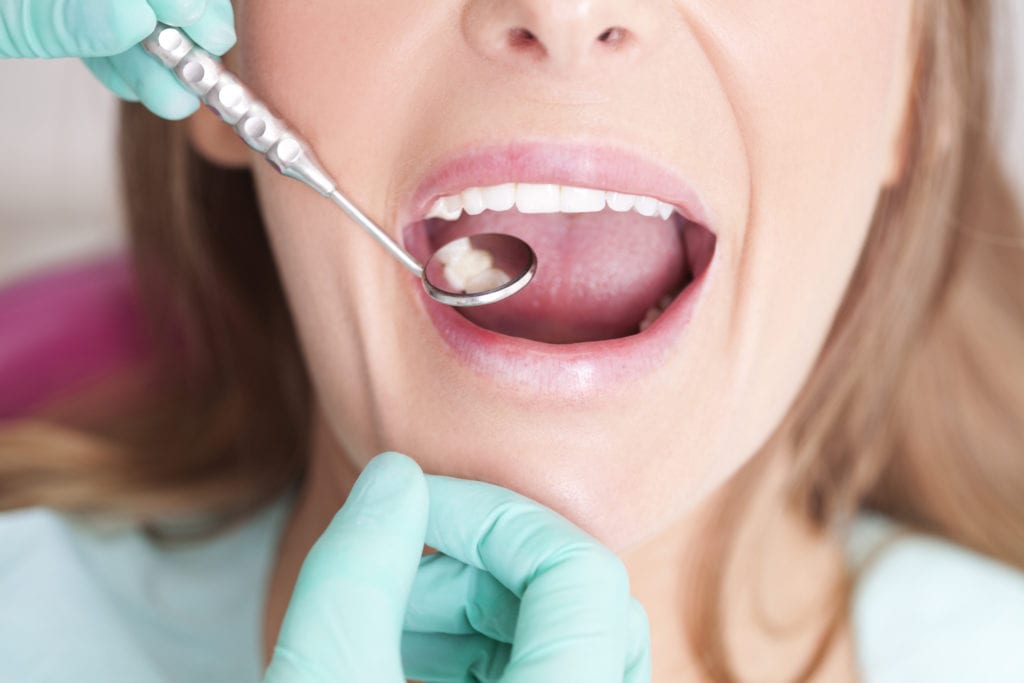Gum disease is a common dental problem that affects millions of Americans. Swollen and irritated gums, also known as gingivitis, precede gum disease or periodontitis, so it is important to catch them in the early stages. Gum disease begins when bacterial plaque builds up on and between teeth. The early stages of gum infection are marked by red, swollen, and bleeding gums. However, gingivitis is easily reversible with dental cleanings. If gingivitis is left untreated, it slowly develops into periodontitis, and can eventually lead to tooth loss. However, Dr. Ned Greenberg and Dr. Millard Mazer offer a multitude of restorative treatment options to reverse the harmful effects of gum inflammation and gum disease in Baltimore, MD. Dr. Mazer is an experienced periodontist in Baltimore County who helps patients reverse the effects of gum disease.

Causes and Symptoms of Gum Disease
Patients who smoke and use tobacco products are predisposed to gum disease. Certain medications and improper oral hygiene can also increase your chance of developing periodontitis. The main preventative measure against gum disease is good oral hygiene. Scheduling regular dental cleanings and visits help ensure that you are getting the oral care you need.
There are also multiple signs of gum disease to look out for:
- Swollen and bleeding gums
- Toothaches
- Mouth sores
- Receding gums
- Loose teeth
- Bad breath
Contact Dr. Greenberg and Dr. Mazer if you have noticed any of these symptoms. It is important to treat gum issues early before they lead to more serious problems.
Treating Gum Disease in Essex, MD
Before determining the best course of treatment, Dr. Greenberg will thoroughly examine your teeth and gums. There are multiple treatment options for periodontitis that we can provide or refer you to a specialist for, including the following.
- Scaling and Root Planing: These treatments are used in tandem to deeply clean the gums. Scaling also removes tartar from above and below the gum line. Root planing smooths out the rough surfaces of tooth roots to help gums reattach to the teeth.
- Gum graft surgery: During this procedure, a dental surgeon takes bone tissue from another part of the mouth to cover the tooth roots. This grafting surgery is often necessary for severe cases of periodontitis to prevent tooth loss.
- Flap surgery: During flap surgery, we lift the gums to remove plaque and tartar. Patients with deep gum pockets benefit from this type of surgery.
Periodontal Disease FAQs
Can a dentist near me stop periodontal disease from progressing?
Dentists can stop periodontal disease from progressing through periodontal treatment. This involves scaling and root planing. Treatment for periodontal disease can help stop the disease from progressing and can prevent receding gums and tooth loss.
What are the 4 stages of periodontal disease?
The four stages of periodontal disease include gingivitis, initial periodontitis, mild periodontitis, and advanced periodontitis. As you progress through each stage of the disease the infection becomes worse and more serious.
How do I know if my gum disease is getting worse?
Gum disease progressively gets worse as it moves through stages. If bleeding continues and pain increases it is a sign that your gum disease is getting worse.
